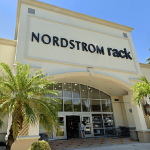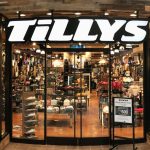The National Retail Federation and more than a dozen of the nation’s most prominent retailers today asked a judge to reject a proposed class-action settlement of a federal antitrust lawsuit, saying it would not bring credit card swipe fees charged by Visa and MasterCard under control and does not give retailers who oppose it an adequate mechanism to opt out.
“The proposal pending before the court does nothing to keep these soaring fees from continuing to drive prices higher for American consumers, and would block merchants who believe in true swipe fee reform from ever having their day in court,” NRF Senior Vice President and General Counsel Mallory Duncan said. “While the remaining parties would like to treat preliminary approval as a routine procedural step, the court should recognize that this settlement is so legally flawed it cannot be tweaked into fairness.”
“We question whose interests are being served here merchants and their customers or the card companies and lawyers,” Duncan said. “Instead of improving the situation, the proposed settlement would cast in stone the very problems that need to be fixed. And while the settlement gives pennies on the dollar to merchants, it seeks three-quarters of a billion dollars for the lawyers involved. Sophisticated retailers who have scrutinized the tentative deal realize it provides relief for no one, and don’t want this blatant endorsement of the credit card industry’s abuses pushed on them or their customers.”
Nine mostly small merchants supporting the settlement filed a motion with U.S. District Court Judge John Gleeson in Brooklyn, N.Y., on October 19 asking for preliminary approval of the proposal, and oral arguments are scheduled for November 9. Preliminary approval would begin a months-long process in which all retailers who accept Visa and MasterCard credit cards would be sent notices giving them the opportunity to either accept the settlement or opt out of part of it. Arguments on the merits of the settlement and whether it should be given final approval would not begin until sometime next year.
NRF argued in a brief filed today that preliminary approval should be denied, saying the settlement cannot legally be certified as a class action because it attempts to force a one-size-fits-all solution onto an wildly diverse group of merchants. NRF also argued that a provision barring all retailers including those who opt out of the settlement and even those who do not yet exist from filing future lawsuits over swipe fees is impermissibly broad under federal law. The provision would allow the card industry to continue its anticompetitive practices and fee increases unchallenged.
NRF said the unusual structure of the settlement gives merchants who oppose it no mechanism to truly opt out. Rather than being able to opt out entirely, retailers would only be able to reject their share of the $7.25 billion offered as compensation for past price fixing, and would remain bound by flawed injunctive relief that would entrench current card industry practices rather than take steps to limit future fee hikes.
While the $7.25 billion figure has been touted as a record antitrust settlement, NRF and its members believe effective injunctive relief that would keep fees from rising going forward is more important. The amount represents less than three months’ worth of swipe fee collections despite the eight-year period covered by the lawsuit.
The injunctive relief proposed in the settlement fails to reform the cartel-like system where Visa and MasterCard set a rigid schedule of swipe fees that all banks follow. It does nothing to disclose the hidden fees or otherwise create transparency that would encourage competition that would lead to lower fees. Ostensibly, merchant bargaining groups could be recognized, but that is no change from current law. And while some merchants would theoretically be given the right to surcharge as a bargaining chip to hold down fees, the provision is subject a wide variety of card company restrictions, would be illegal in 10 states, and ignores the goal of merchants to reduce prices paid by their customers, not increase them.
NRF is not a party to the suit, but represents thousands of retailers who would be affected if the case is approved as a class action. Retailers joining NRF in today’s brief included 17 companies and two associations that are not parties to the suit but would be affected: Target Corp., Macy’s Inc., J.C. Penney Corporation Inc., GAP Inc., Limited Brands Inc., Dillard’s Inc., Big Lots Stores Inc., Ascena Retail Group Inc., Neiman Marcus Group Inc., Abercrombie and Fitch Co., Saks Inc., Chico’s FAS Inc., Bob Evans Farms Inc., Papa John’s International Inc., CKE Restaurants Inc., American Signature Inc., Boscov’s Inc., the American Booksellers Association and the National Association of College Stores.
Swipe fees are a hidden charge banks collect each time a Visa or MasterCard card is swiped to pay for a purchase. Combined credit and debit card swipe fees tripled over the past decade to about $50 billion a year driving up prices an estimated $427 for the average household before debit swipe was capped by the Federal Reserve last year. Credit card swipe remains unregulated and averages about 2 percent of each transaction, amounting to about $30 billion a year, or $250 per household.















